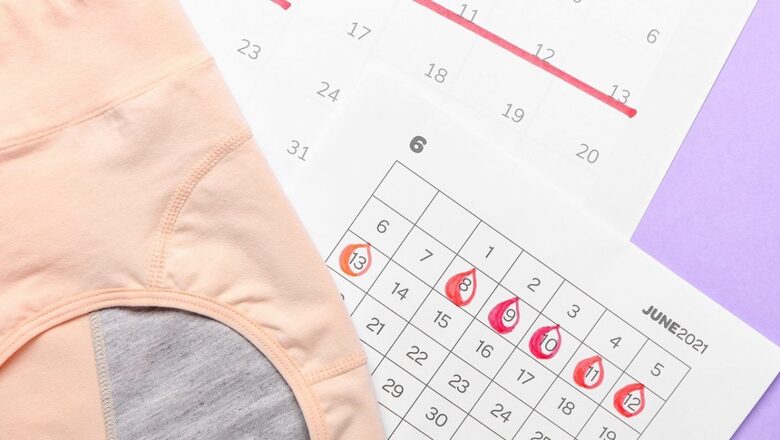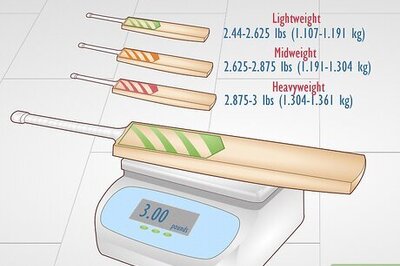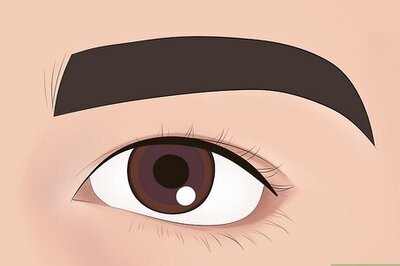
views
As the global movement towards sustainability gains momentum, period panties have emerged as a key player in revolutionizing menstrual care. These eco-friendly products offer a sustainable alternative to traditional disposable sanitary products like pads and tampons, contributing to a zero-waste lifestyle.
According to Rithish Kumar, co-founder, Pee Safe, period panties play a crucial role in reducing the environmental burden caused by disposable menstrual products. “On average, a menstruator uses more than 10,000 disposable pads or tampons in their lifetime,” Kumar notes. By switching to reusable period panties, which can last several months with proper care, consumers can drastically reduce the amount of sanitary waste that ends up in landfills. This shift not only helps cut down on waste but also reflects a growing awareness of the environmental impact of disposable menstrual products.
Kumar highlights that the appeal of period panties lies in their dual focus on functionality and environmental responsibility. They offer a comfortable and discreet solution without sacrificing protection, making them an increasingly popular choice among eco-conscious consumers. “Their leak-proof abilities, breathability, and overall comfort position them as a strong contender for those seeking long-term, sustainable menstrual solutions,” he adds. However, Kumar also emphasizes the importance of recognizing the diversity of menstrual needs. “While period panties are a key part of the sustainable menstrual care landscape, convenience, accessibility, and personal preference still guide product choice,” he says. The goal should be to empower menstruators to make environmentally conscious decisions at their own pace, with a range of options available to suit different needs.
Mahipal Singh, Founder and CEO, Revaa, further expands on the environmental benefits of period panties, particularly in the context of a zero-waste lifestyle. “In a zero-waste lifestyle, every product chosen counts,” Singh states. Period panties offer a reusable alternative that significantly reduces the environmental footprint of menstruation. Traditional disposable products, like pads and tampons, contribute heavily to plastic waste, much of which ends up in landfills or oceans, taking centuries to decompose. “Period panties are designed to reduce reliance on single-use products, providing a sustainable alternative to the growing waste crisis,” Singh explains.
In addition to their sustainability benefits, period panties are also valued for their safety and comfort. “Most disposable products have chemicals, synthetic fibres, and fragrances that irritate the skin,” Singh notes, whereas period panties are safe, providing rash-free comfort while supporting sustainable consumption. He underscores that this shift in menstrual care is not just about swapping one product for another, but about changing consumption patterns. With proper care, a pair of period panties can last several years, helping consumers cut down on waste while also saving money in the long term.
Singh also emphasizes the inclusivity of period panties. “The availability of these panties in various absorbency levels and inclusive sizes ensures accessibility for a wide range of needs,” he says. At Revaa, promoting sustainability through small yet impactful choices is a core mission. As eco-conscious living becomes more mainstream, Singh believes that period panties serve as a powerful example of how even intimate personal care products can contribute to a zero-waste future. “Period panties benefit both individuals and the environment, aligning personal well-being with sustainability,” he concludes.
Together, these perspectives highlight the transformative role of period panties in sustainable menstrual care. As more consumers seek eco-friendly alternatives, products like period panties not only offer a solution to the environmental challenges posed by disposable menstrual products but also promote healthier, more comfortable, and cost-effective menstrual experiences. Through brands like Pee Safe and Revaa, the shift towards a zero-waste lifestyle is becoming more accessible, empowering menstruators to make sustainable choices that positively impact the environment and their own well-being.


















Comments
0 comment